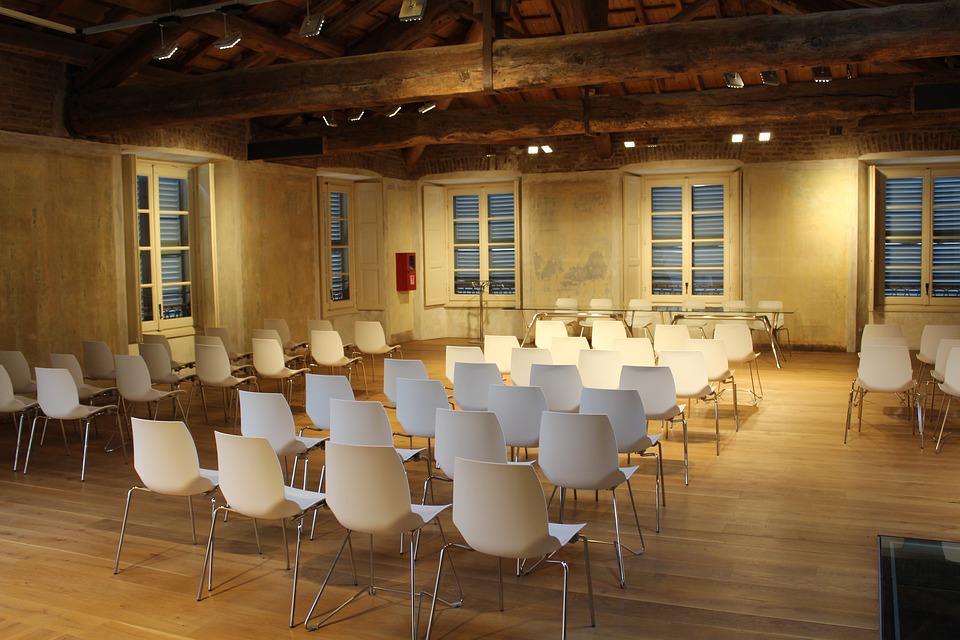The Renaissance of the Events Industry

The last two years have been exceptionally challenging for the $1.5 trillion global events industry, with the COVID-19 pandemic having decimated the meetings, incentives, conferences, and exhibitions (MICE) industry.
While several businesses and organisations were quick to resort to online and later hybrid events, the gap created due to the absence of actual in-person gatherings still remains.
With the most stringent restrictions on travel and social gatherings now lifted, mass vaccinations for all countries on the horizon, and reopening of economic activities, it seems the dust is finally settling.
What is now clearly visible at the end of the tunnel is the renaissance of the event industry, and experts say it is poised to be one of the greatest assets of the post-COVID world. What will this rejuvenised comeback of the industry look like? How will post-COVID events shape up? According to our research, the renaissance of the event industry will be marked by a significant comeback of in-person events, but virtual gatherings are also here to stay.

The Great Comeback
It is not just industry expectations but also a visible shift in scenarios that speaks of a bigger comeback of in-person events in the post-COVID renaissance. A survey conducted by Splash suggests this revival will be strong, with over 50% of respondents admitting plans to host more in-person events in 2022.
This optimism has brought great tidings for event companies and event organisers, besides those working in catering, decoration, and hospitality sectors. The requirement is for businesses to increase investments for facilitating such in-person events that engage audiences on an entirely different level.
The Mutation of Virtual Crowds
Technical ingenuity has made it possible to bring together people to engage in large numbers online. Such virtual gatherings have been a complete saviour during pandemic times, besides cutting down travel time and expenses, hospitality overheads, and more.
Experts suggest that the events industry’s renaissance will see standardisation of such digital gatherings, possibly mutating into hybrid models. The reason? Higher and deeper engagement across social, economic, and geographical diversity, with internet usage having gone mainstream across age groups.
Technological prowess will enable further mutation of virtual events, and transformations are already shaping up. Webcasts, 3D immersive worlds, and Virtual Reality to name a few, are driving unprecedented experiences and engagement to digital gatherings. The Splash survey highlights that 45% of surveyed companies expect to host more virtual events in 2022 than they did in 2021 but are expecting fresher tools and technologies for the purpose. It goes without saying that such reforms have the potential to deliver huge returns if applied judiciously.
Increased Focus on Accessibility
The renaissance of the event industry, according to many experts, will shoulder not on in-person or virtual events exclusively, but on the premise of the hybrid. A hybrid event is a combination of physical and digital experiences, both complementing each other. The idea is to facilitate participation, and not just spectatorship, by bringing to the table more opportunities for engagement, discussions, and outcomes than digital and physical experiences discretely.
It is important to understand, however, that the revival of the events industry, will be at a time when considerable constraints are still in place. Gathering capacities will be regulated, but organizations would want to rake in participation from wider fronts. A hybrid event would then paint the picture perfect, with the benefit of optional and improved accessibility for all.
Spatial computing will have a key role to play, as the concept of the metaverse will help bridge the gap between digital and in-person experiences. A tiny screen will enable you to experience an entire trade show, a narrow hallway could become host to a huge fair. The event industry revival will, therefore, be marked by a refreshed concept of space, time, and control, with participants having greater control over access and options.
Seeking the Great Niche
Entrepreneurship has emerged successful by leaps and bounds, with innovators coming out in flying colours from all corners of the world. The post-COVID world will demand greater networking and collaboration between these creators, which gives us another key attribute of the events renaissance – serving new niches.
Event organisers will find themselves expanding their reach beyond conventional industries like entertainment or corporates or fashion, with the competition now shifting towards small businesses, innovative platforms, tech companies, and more. Of course, the traditional industries are not going anywhere, but innovative premises are certain to make their way.
Social Media Prowess
The power of social media cannot go unmentioned when we discuss the growth and comeback of events as mega-platforms of interaction. The new age of today is already marked by the importance of several facilitators, and digital media channels are important ones in this list. Social media will help mobilize both audiences and resources, as businesses and customers have all taken online.
Events are poised to transform into powerful platforms for brainstorming across countries and will be important for not just selling as they have been so far, but also to ideate brand strategies, for teaching and for learning. Events are going to breathe life into what we term as the collective intelligence that the future is going to be marked with, and social media will play an important role weaving all of this together and bringing before the audience.

The Road Ahead: Opportunities Galore
The renaissance of the event industry after the ill bodings of the pandemic will be powered by technology and characterized by hybridisation. The real incentive will lie with the power of the “Experience Economy”, and whatever facilitates it – in-person, virtual, or hybrid interactions.
Moving forward, events will be well-attended. What organisations need now is to invest in robust technologies, tools, training, and platforms to maintain the high standards expected from them.
Related Posts

A Corporate Christmas Party with a Difference
Do you dread the company’s Christmas party invitation arriving on your desk? Tired of soggy sausage rolls, lukewarm turkey, and limp vegetables, coupled with making small talk over a glass…

Electric Flamingo Christmas Party
In the dark days of winter, London becomes a canvas of sparkling lights, festive decorations, and joyous celebrations. Among the myriad of events, the Electric Flamingo Christmas Party at The…

Le Sorelle Barge in London
Discover an unparalleled blend of historical charm, luxury, and modern comfort aboard Le Sorelle, an extraordinary 1950s barge conversion nestled in the heart of Canary Wharf. Crafted with reclaimed wood…

Finding the Perfect Gallery Venue in London
Finding the perfect gallery venue for an event offers an inspiring environment that can greatly enhance the creative experience. These spaces are specifically designed to showcase artistic work, providing optimal…
